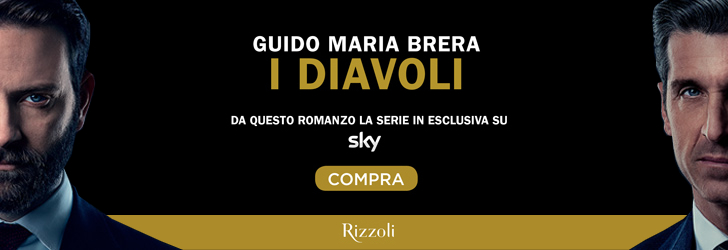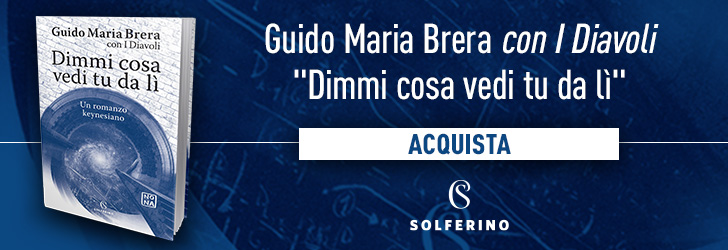
Decodificare il presente, raccontare il futuro
MONITOR
lun 6 luglio 2020
THE WAR THAT COMES. BREXIT, VOL.3
If José Saramago’s “stone raft” broke away from the continent and wandered the ocean in pursuit of utopia, the British concrete island declares its separation from the European Union as immovable, ready to be swallowed up by the same financial capital that generated this rupture. The third leg of The Devils’ journey, down into the British abyss, through its quicksand.
Beneath a steady and continuous wind, in the British far west, the quicksand of Morecambe Bay emerges rancid from the subsoil. They cling to the confines of the island and prevent it from drifting.
If José Saramago’s “stone raft” broke away from the continent and wandered the ocean in pursuit of utopia, the British concrete island told by James Ballard declares its separation from the European Union without having the ability to leave. It stops, motionless, ready to be swallowed up by the same financial capital that this fracture has provoked and led.
Before Morecambe Bay, there is Lancaster. A Roman outpost, in the Middle Ages it became one of the most important cities of the Kingdom and the site of the most famous witchcraft trial: The trials of the Pendle witches. Today, Jeremy Corbyn sits in the dock.
He moved the party too far to the left. And actually only got one million more votes than Ed Miliband and Tony Blair, and two million more than Gordon Brown, the last centrist Labour candidates. He’s an old wreck, the son of ancient ideologies that don’t keep up with the contemporary times. And in fact he triumphed in the 18-30 age group, and won in the 30-50 age group. He lost by a little in the those aged +50, and by a lot in those aged +65.
Jeremy Corbyn is like witches, guilty until proven guilty. Guilty of showing the possibility of another, better world. Guilty of wanting peace.
“Jeremy Corbyn was guilty before the trial even began. For months, the press turned him into the target of the most blatant personal contempt and abuse. He was literally the ghost that roamed Britain with a manifesto of social transformation that, for the first time since World War II, dared to protect jobs, the environment, change taxation and refinance welfare,” Francesca Coin, senior lecturer in Sociology at Lancaster University, says.
“It is the greatest deception of capital, that which leads people to vote, or even fight, against their material interests. If we can call this mix of austerity, racism and neoliberal policies that await the Kingdom fascism, then they also includes the promises about ‘doing’ and ‘controlling’ that characterised the Tories’ election campaign,” John Foot, professor of contemporary history at Bristol University, says.
In the most recent history, the imperial one, Lancaster was home to the textile industry. And to slavery. Between a canal and a gothic spire, a flea market as crowded as ever and a pub where one can drink to remember to forget, a painting appears. Made by school children, it represents one of the city’s “benefactors” holding what looks like a glove. It is the hand of his slave, who cut and buried in the cemetery at the death of his faithful servant.
It is the eternal return of the Empire, under old and new forms.
“Neoliberalism in bankruptcy can only relaunch a nationalist protectionism that, just like a wall, keeps the crisis and migrants at a distance. Here as elsewhere. Now, there will be an inevitable strengthening and extension of the Commonwealth’s ties. And an even closer — and vassal-like — link with the US, Trump or no Trump, and with other English-speaking countries,” Leonardo Clausi, correspondent for “Il Manifesto” from London, says.
“I wouldn’t be surprised if, in the next few years, Great Britain became a kind of Dubai, a tax haven that offers freedom to capital and entrepreneurs, and in which the working class lives in a proto-slavery condition. I expect an increase in unemployment, a final privatisation of health care with an aggressive entry of American pharmaceutical companies, education in essence is already private, further assaults on social protection. Freedom of movement of capital for the rich; borders, cuts, police and exploitation for everyone else,” Francesca Coin adds.
The quicksand of neoliberalism is at work. Andy Capp no longer has a chance.
From Hartlepool to Middlesbrough, from Leeds to Bradford, from Manchester to Blackpool, from Lancaster to Morecambe. From East to West, from dawn to dusk. The winter of our discontent finally fell on this excrescence of land emerged in the North Sea.
Roy, owner of the Edmonsons fishmonger in Morecambe Bay, proudly displays black and white photographs of a charming resort town with a huge, crowded swimming pool. All around, in the background, fishing and trading ships calmly cut through the icy sea.
Today, this is no longer the case. Morecambe Bay is just another British ghost town. The “Food Bank”, which distributes food to those at the most advanced point of development in the West who do not have the money to eat, is under attack. They’re young, white, British. They believe in the Empire. They voted Boris Johnson. They’re ready for war.
Here, in 2004, about twenty Chinese irregular immigrants arrived in containers in the port of Liverpool, and where then distributed as slaves along the coast, were swallowed up by quicksand. They were almost all in their twenties. They collected shellfish on quicksand in exchange for starvation wages, paid under the table. They all died, for the glory of the Empire.
It was a tragedy of slavery that did not scratch the Blairism grandeur, a cry of alarm that was not understood. Today, migrants die daily in camps and construction sites, in factories and containers. Today, the inhabitants of the Kingdom shop at the Food Bank and vote against their own interests. They mourn the empire and vote for Brexit, which will mark its end. They hate the migrants and rejoice at their deaths, covering their eyes so as not to understand that they are killing themselves.
Lo specchio è ignobile, perché mostra che l’altro siamo noi.
The mirror is vile, because it shows that we are “the other”.
With disarming innocence, seraphic, Roy points to the election poster hanging in the window of his fishmonger, and says: “The Tories with austerity have cut all services, welfare and public health. That’s why I voted for them. Because now, with Brexit, they’ll get us back on track.”
Barrow In Furness, in front of Morecambe Bay, is the place where Mark Fisher — one of the most lucid analysts of the quicksand of neoliberalism, of their ability to swallow every dimension of the human being, depriving him of any possibility of escape, even imaginary —was born.
Forty years of austerity policies, of indiscriminate cuts, have eroded all hope. “It’s not that democracy will end, but that it will be reduced to a set of spectacles that the government is ultimately in command of, which everyone realises are ‘fake’ but that are sufficiently funny or soothing as to be tolerated,” William Davies wrote on The Guardian.
In the “burnout society” told by Mark Fisher and Byung-Chul Han, which the Kingdom is the most sublime manifestation of, in every public or private bathroom there is a button, through which customers can be more or less satisfied with the level of cleanliness of the room. Everything is under control, everything is in competition, everything is judged.
If you press the red light, they fire half the workers because they didn’t clean properly. If you press green, they fire half of the workers because obviously less are needed to do the job. If you press yellow, they fire the workers because in the performance society you always have to excel.
The secret of this stingy humanity is found in the loos of the Kingdom.
Imprisoned in the most violent system of discipline and surveillance ever implemented in history, the human being uses his last strength to judge and be judged. The trials of the Pendle witches can be found everywhere today.
Walking along the Morecambe Bay promenade, between a permanently lowered shutter and a building about to collapse, pubs and amusement arcades are the only lights that illuminate the untimely night.
Viva Las Vegas! Where the neon signs flash your name, the one-arm bandits cash in, all those hopes down the drain… … …
Morecambe Bay is finis terrae. Beyond the quicksand, there is nothing. Only the end of the Kingdom, and the beginning of Alfred Kubin’s Other Side. Prophetically written a few years before the beginning of the Great War, the novel tells a world “burdened with a permanent mystery, conceived as a mosaic of ruins, antiquities, and decrepit and corroded remainders of the past.”
The failure of the Cop25, the world climate conference, and the Brexit to come after the British elections, resulting in the disintegration of Europe, are linked. They are the latest declaration of war by catastrophic capitalism. Yet another repeated attack in Sarajevo. The endless casus belli.
“Brexit as the first step of the dismemberment of Europe, one of the mainstays of the post-war order, will mark the beginning of a phase of extraordinary instability. A bit like the suspension of the convertibility of the pound to gold in 1914 marked the beginning of a phase of instability culminating in the first (and then second) World War, so we are witnessing the long agony of the geo-monetary order after World War II. It will be anything but pleasant. What frightens me is that, even in the last century, it was necessary to go through the worst nightmares to become human again,” Francesca Coin says.
The journey at the end of the night of the Kingdom’s dissolution and the end of Europe ends in front of the Old Pier Bookshop. A Borgesian labyrinth library of infinite dimensions, containing all the books ever published since the dawn of time.
Ronnie, the bookseller, shows a copy of the second original edition of George Orwell’s The road to Wigan pier, which had identified the end of the Kingdom at the time of its greatest expansion.
He had fought Fascism not only in Catalonia in 1936, by taking up arms against the Bando Nacional, but also and above all at home, identifying the adherence of the British white working class to the imperial ideology as the seeds of its defeat.
“I can’t sleep at night because of what happened: one day, we will wake up and realise we have been fooled. It is easy to repeat the mistakes of the past, if you no longer remember them. And we know what happens when Europe is not united. How long has it been since we have seen war between European countries, how much longer can peace last?” Ronnie wonders.
Quicksand has swallowed up all hope. Andy Capp is getting ready for war.

